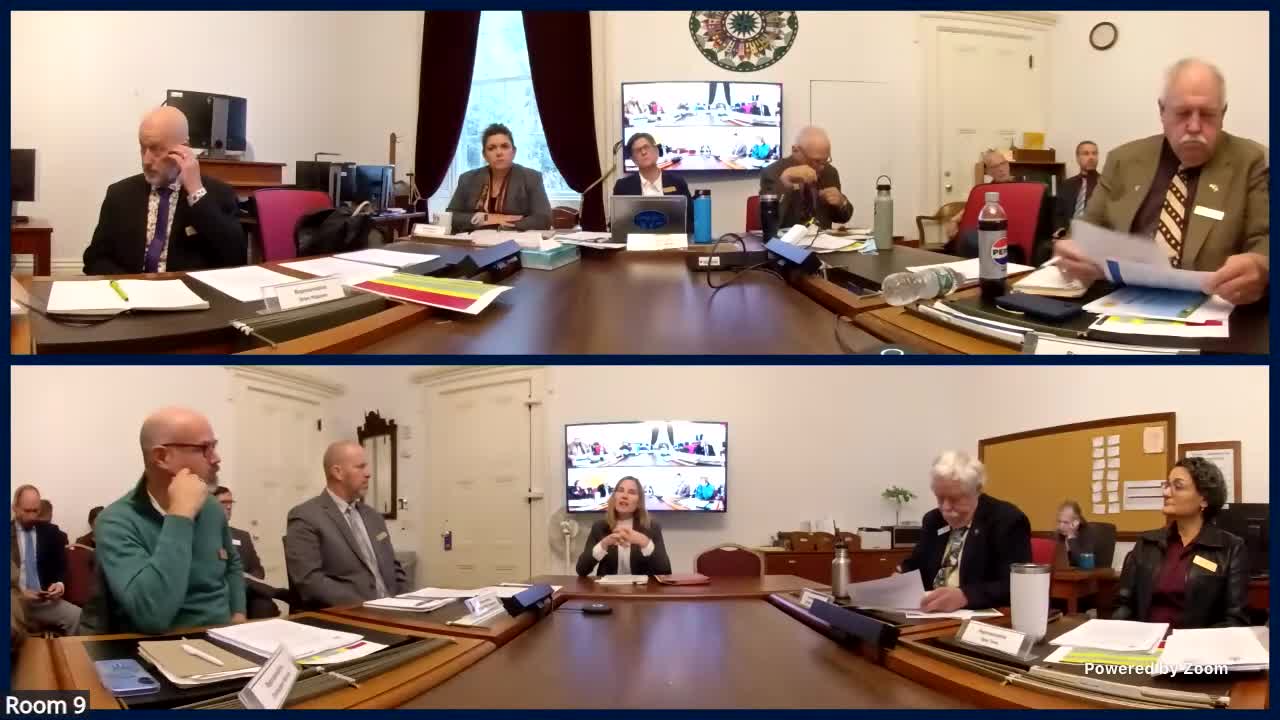Vermont attorney general details lawsuits over EV charging, Solar for All and defense of Climate Superfund Act
Get AI-powered insights, summaries, and transcripts
Subscribe
Summary
Attorney General Charity Clark told the House Energy and Digital Infrastructure Committee that the state has sued the federal administration over withdrawals and cancellations that affected Vermont's EV charging and solar grant programs and that her office is defending the state's Climate Superfund Act in federal court.
Attorney General Charity Clark told the House Committee on Energy and Digital Infrastructure that the state has pursued multiple legal challenges to recent federal actions that altered or canceled programs intended to fund electric vehicle charging and rooftop solar for low-income households.
Clark described one suit over the National Electric Vehicle Infrastructure (NEVI) program, which she said involved a federal withdrawal of plan approvals and a later reapproval. "We did get our money eventually, and we're still briefing on the motion for summary judgment so that we can make sure we're protected moving forward," Clark said. She said Vermont's approved NEVI plan involved roughly $16,000,000 in federal funds for EV infrastructure. Clark said the office first sued in early May after a pause in federal guidance; a preliminary injunction followed in late June that required funding of previously approved plans but initially did not include Vermont until the office supplied a supporting declaration.
On the federal Solar for All program, Clark said Vermont had been set to receive $62,000,000 and that the office had filed multiple suits after grant cancellations. Clark described the litigation strategy: some claims were brought in the U.S. Court of Federal Claims on contract-like theories, others in federal district courts, and a separate filing in the D.C. Circuit where certain claims are governed by the Clean Air Act. Clark said the office had not yet filed a motion for a preliminary injunction in the Solar for All matters and that the multi-court approach reflects recent changes in case law and venue rules.
Clark also updated the committee on her office's defense of the Climate Superfund Act, the state law challenged by the U.S. Chamber of Commerce, the American Petroleum Institute and intervening states. "We filed a motion to dismiss this summer," Clark said, and she described the cases as moving through motions practice with additional filings due next month and oral argument likely to be scheduled after briefing is complete.
Clark framed the litigation as part of the attorney general's oath to defend state sovereignty and the rule of law. "I take it very seriously. It's that's my job," she said. The attorney general said the office had brought dozens of suits this year challenging federal actions and that the litigation often involves coordination with other state attorneys general and outside counsel.
The committee asked technical questions about venue, standing and timelines; Clark explained that different claims require different courts (for example, the Court of Federal Claims for contract-type disputes and the D.C. Circuit for certain Clean Air Act-related reviews), and that motions for preliminary injunctions require a showing of likely success and imminent harm.
What's next: Clark said briefing on summary judgment in NEVI remains underway, the Solar for All litigation is active and that the Climate Superfund Act litigation will proceed through the normal motion schedules with likely argument early next year. All filings and court records are public, she said, and she offered to provide documents to the committee.
